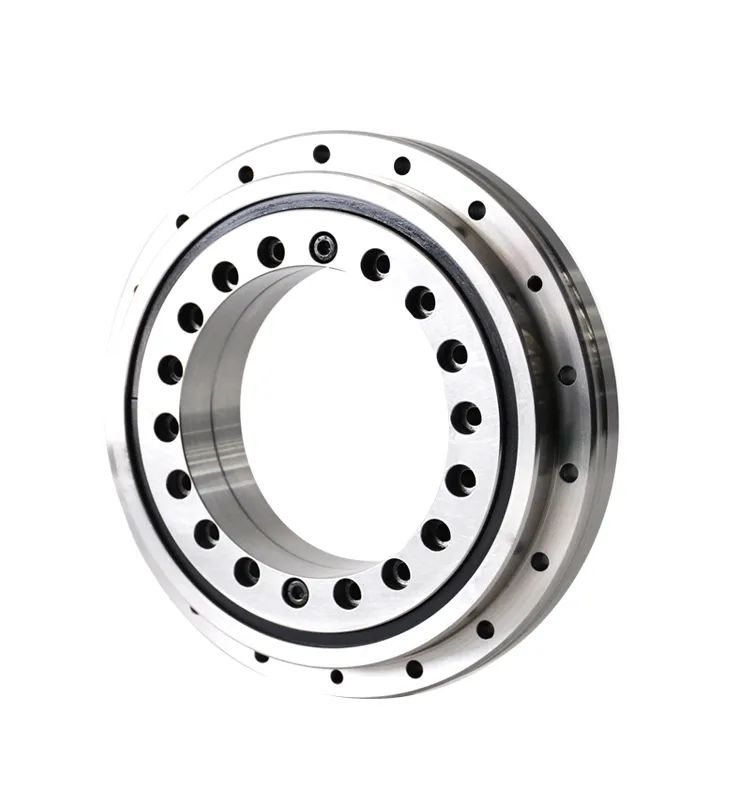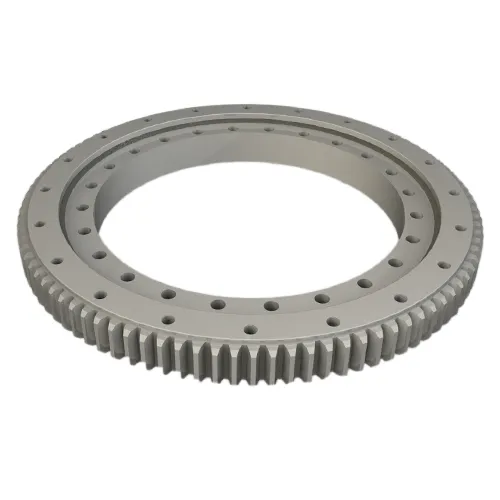Turntable bearings and turntable bearings are indeed very similar in name, with only one letter difference, and both are rolling bearings used for mechanism support and rotation. However, it should be noted that they are actually different. There is an essential difference between the two. The former refers specifically to high-precision rotating equipment, while the latter includes large bearings used for ordinary-level rotation. When selecting related bearings or repairing equipment, you must understand what kind of bearings your equipment needs.
Turntable bearings are a kind of bearing that can simultaneously withstand axial loads, radial loads, and overturning moments. They are precision bearings with special structures that integrate support, rotation, transmission, and fixation. Turntable bearings are basically made of fully quenched bearing steel GCr15SiMn, with good material, high hardness, wear resistance, and high structural stability; turntable bearings are made of surface-hardened steel, only surface heat treatment, impact resistance, good material processing economy, and relatively poor structural stability. Turntable bearings have high precision, basically at the micron level, and are mainly made by grinding. Relying on its own characteristics and strict processing technology, turntable bearings can also accept inductive directional loads and have high rotation accuracy. The structure of turntable bearings varies greatly. YRT turntable bearings belong to ultra-high precision (close to P2 level) turntable bearings, which are composed of 2 rows of axial rollers and 1 row of radial roller bearings. This series of bearings is difficult to process and has high precision requirements. They are suitable for precision CNC machine tools, measuring instruments, military equipment, etc.

The precision of turntable bearings is low, all at the level of threads, and a few threads or dozens of threads are normal. They are mainly made by turning. Turntable bearings are a large-scale bearing with a special structure that can simultaneously withstand large axial loads, radial loads, and overturning moments. It integrates multiple functions such as support, rotation, transmission, and fixation. It also has equipment holes, lubricating oil and sealing equipment. It is used for large equipment such as lifting and transportation machinery, mining machines, construction machinery, port machinery, and wind power generation;
Turntable bearings are usually composed of four major components: inner ring, outer ring, rolling element, and barrier block. Because the core component adopts a slewing bearing, it can simultaneously withstand axial force and radial force. There are many ways, but the structure is basically the same. Generally speaking, the turntable bearing itself is equipped with equipment holes, lubricating oil and sealing equipment, which can meet the different needs of various main machines working under various working conditions; on the other hand, the turntable bearing itself has the characteristics of compact structure, convenient guiding rotation, simple equipment and easy maintenance.


